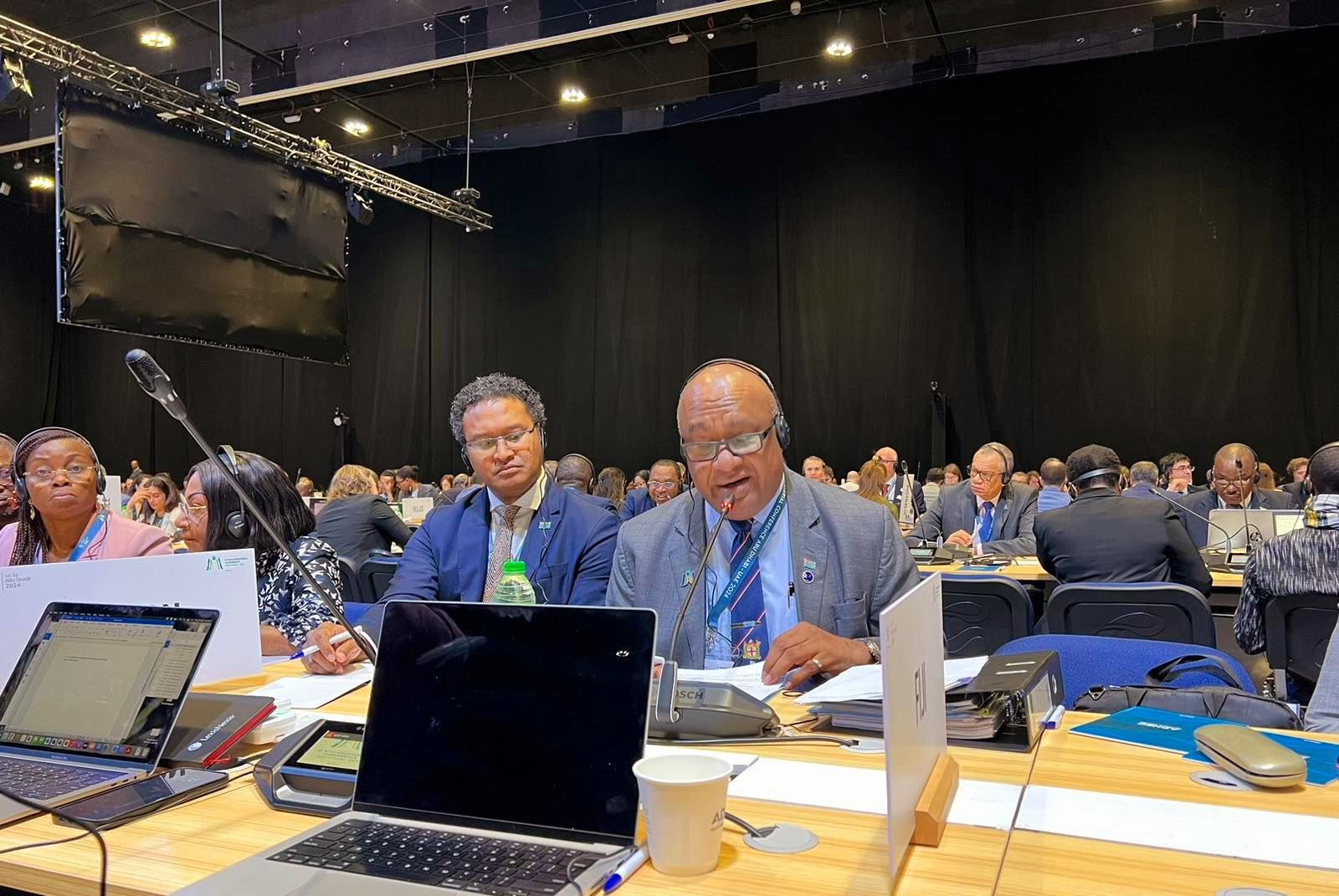Pacific Trade Ministers, including Fiji’s Minister for Trade Manoa Kamikamica, are demanding an end to unjust subsidies fueling illegal fishing.
Amidst intense discussions on longstanding disputes over fishery subsidies, Kamikamica stressed the critical juncture at MC 13 to solidify an agreement initiated during MC 12 in Geneva two years ago, now known as “Wave Two.”
The fisheries agreement sets its sights on mitigating the detrimental impact of subsidies, particularly those propping up distant water-fishing nations.
Kamikamica said that the Pacific delegation is resolutely calling for a standstill or reduction in subsidies to protect global fish stocks crucial for the Pacific, where foreign vessels have exploited waters for years.
He stressed that this is not a passive observation, as they are vocal advocates pressing for subsidy control, aligning with Sustainable Development Goal 14.6, which addresses overcapacity and overfishing linked to subsidies.
“We are here to push for subsidy control; standstill if you like; it’s the word or reduction, and that’s the fundamental gist of the Pacific offer.”
With 50 percent ownership of tuna stocks, Kamikamica said the Pacific holds a moral imperative to safeguard these resources for future generations, underscoring the significance of fishing to their identity.
Permanent representative to the WTO for the Pacific Islands Forum, Ambassador Mere Falemaka, has outlined the core issues in the Abu Dhabi package, emphasising the draft fishery subsidies agreement.
This package, she said, includes decisions on agricultural reform, WTO dispute settlement, e-commerce work programs, and a moratorium on customs duties.
As ministers converge in Abu Dhabi, the Pacific remains optimistic about achieving their goals, fortified by a case rooted in global demands for sustainable practices, ownership of critical resources, and a commitment to preserving our unique identity tied to the ocean.














